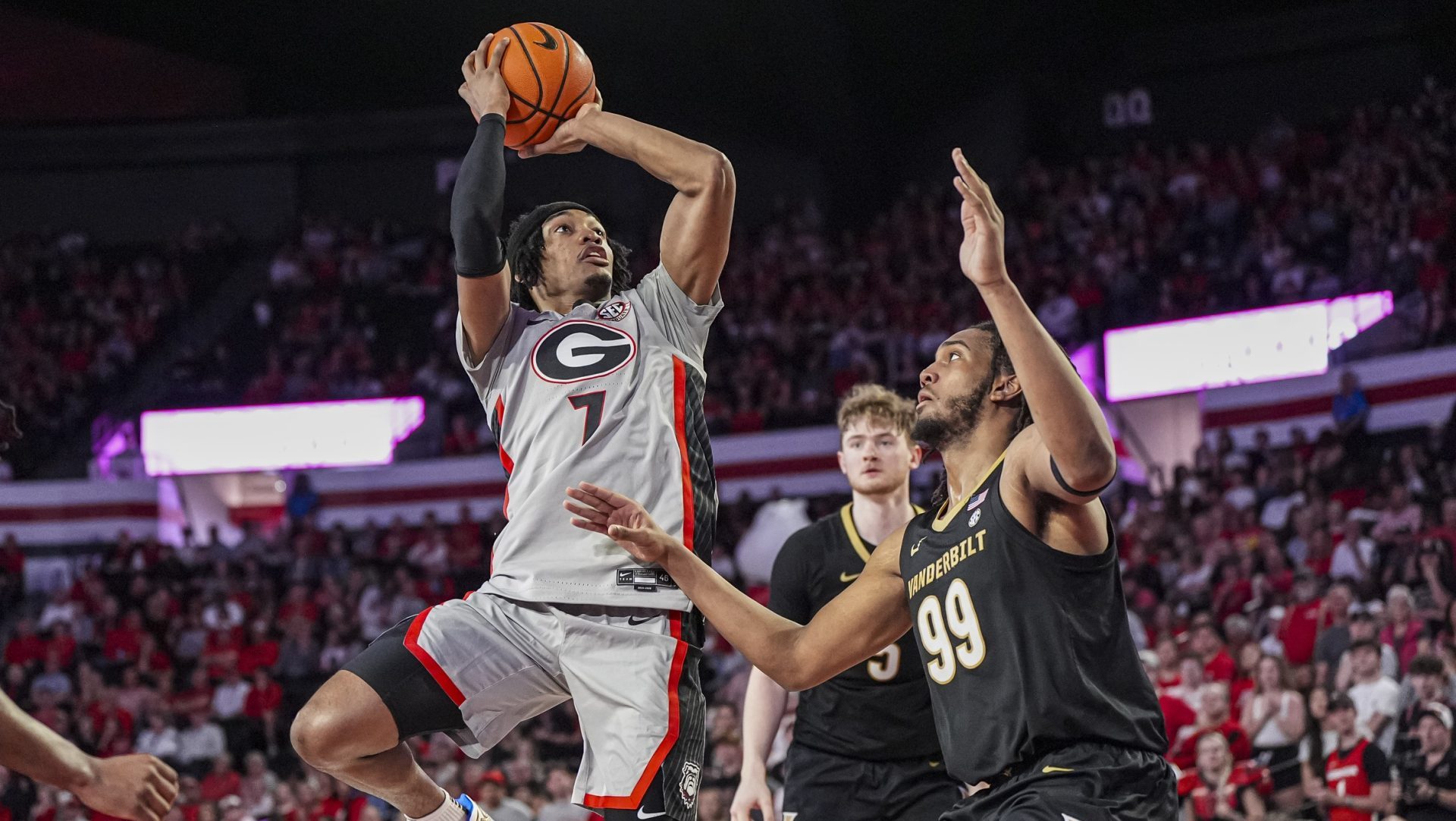If the House v. NCAA settlement passes, the NCAA will give up power to enforce its concept of amateurism once and for all.
The power conferences, not the NCAA, will be in charge of enforcing the rules created by the House v. NCAA settlement over athlete compensation, NCAA President Charlie Baker confirmed Tuesday. The rules to be governed by power conferences include the revenue-sharing cap and scrutiny of NIL (name, image, and likeness) collective deals.
Baker’s comments, made during an event run by the Knight Commission in Indianapolis, signify a potential major shift in the governing body’s power. The NCAA will essentially cede the enforcement of amateurism rules (i.e., player compensation restrictions) to power conferences, and retain enforcement of other concepts like academic eligibility, in-game sports rules, and sports betting. The governing body will also continue to run championships, and will pay for a significant amount of the House settlement damages.
The House v. NCAA settlement is awaiting a final decision by Northern District of California Judge Claudia Wilken, who could issue a ruling as early as this week. The settlement, a consolidation of three major antitrust cases, offers $2.8 billion in back-damages to players who couldn’t earn NIL money before 2021. Going forward, it allows all D-I schools to share revenue with players up to an annual cap (starting at $20.5 million), but also implements a “clearinghouse” to scrutinize NIL collective and booster deals to ensure they aren’t “pay-for-play.”
“The power conferences’ response to [the lawsuit] is to create an entity, the College Sports Commission,” Baker explained. “The point behind that was to have an entity that would see the cap management system and the third party NIL system. Have rules associated with both. Create enforcement parameters for violating those rules under the rubric that would be the theoretical injunction.”
The “College Sports Commission,” created and overseen by the four power conferences and not the NCAA, will make sure all Division I schools are abiding by the cap on revenue-sharing. It will also own “NIL Go,” the clearinghouse software created by Deloitte that will use data to scrutinize whether an NIL deal offered by a collective or booster is offering fair-market value, or whether the deal is actually pay-for-play disguised as NIL. The adjudication process will also allow players to appeal these decisions through “neutral” arbitration. (Details of the clearinghouse process were revealed in a memo obtained by Front Office Sports last week.)
It’s unclear what punishments would be handed down to athletes, schools, and third parties if they violate salary cap rules or offer pay-for-play NIL deals. The CEO of the college sports commission, who has yet to be named, would have the final say, according to an ESPN report.
Industry experts have told FOS that players, schools, and third-party NIL entities could challenge the clearinghouse and revenue-sharing cap in court on antitrust grounds. Those are challenges that have historically been faced by the NCAA, but will now be the burden of the ACC, SEC, Big Ten, and Big 12.
Perhaps that’s why the conferences have, behind the scenes, distributed a memo to their member schools that would bind them to the terms of the settlement and prevent them from suing the conferences to challenge this new adjudication process. The memo’s existence was confirmed by FOS Monday following a Yahoo Sports report.
But at this point it’s unknown whether the memo will give the power conferences the teeth to implement these enforcement mechanisms successfully. Attorney Darren Heitner, who has spoken with a handful of college coaches about the memo, tells FOS: “General consensus is that it’s a shitshow—and going to keep me busy.”
In other words, the power conferences could run into some of the same issues that have plagued the NCAA for more than a decade: Antitrust lawsuits that continue chipping away at their control over whether and how much players get paid.







![[Subscription Customers Only] Jun 15, 2025; Seattle, Washington, USA; Botafogo owner John Textor inside the stadium before the match during a group stage match of the 2025 FIFA Club World Cup at Lumen Field.](https://frontofficesports.com/wp-content/uploads/2026/02/USATSI_26465842_168416386_lowres-scaled.jpg?quality=100&w=1024)
![[Subscription Customers Only] Jul 13, 2025; East Rutherford, New Jersey, USA; Chelsea FC midfielder Cole Palmer (10) celebrates winning the final of the 2025 FIFA Club World Cup at MetLife Stadium](https://frontofficesports.com/wp-content/uploads/2026/02/USATSI_26636703-scaled-e1770932227605.jpg?quality=100&w=1024)








